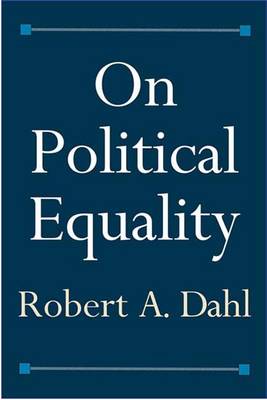Robert Dahl, one of the world's most influential and respected political scientists, has spent a lifetime exploring the institutions and practices of democracy in such landmark books as "Who Governs?", "On Democracy", and "How Democratic Is the American Constitution?" Here, Dahl looks at the fundamental issue of equality and how and why governments have fallen short of their democratic ideals. At the centre of the book is the question of whether the goal of political equality is so far beyond our human limits that it should be abandoned in favour of more attainable ends, or if there are ways to realistically address and reduce inequities. Though complete equality is unattainable, Dahl argues that strides toward that ideal are both desirable and feasible. He shows the remarkable shift in recent centuries toward democracy and political equality the world over. He explores the growth of democratic institutions, the expansion of citizenship, and the various obstacles that stand in the way of gains in political equality. Dahl also looks at the motives, particularly those of emotion and reason, that play such a crucial role in the struggle for equality.
In conclusion, Dahl assesses the contemporary political landscape in the United States. He looks at the likelihood of political inequality increasing, and poses one scenario in which Americans grow more unequal in their influence over their government. The counter scenario foresees a cultural shift in which citizens, rejecting what Dahl calls 'competitive consumerism', invest time and energy in civic action and work to reduce the inequality that now exists among Americans.
- ISBN10 0300116071
- ISBN13 9780300116076
- Publish Date 1 August 2006
- Publish Status Out of Print
- Out of Print 5 March 2014
- Publish Country US
- Imprint Yale University Press
- Format Hardcover
- Pages 160
- Language English
